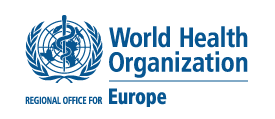Channels
Special Offers & Promotions
Pharmacists have Decisive Role in Combating Antibiotic Resistance, says new WHO European Survey
Pharmacists are among the best positioned to promote the appropriate use of antibiotics, according to a new survey in the WHO European Region.
 They therefore have a crucial role in combating antimicrobial resistance, along with policy-makers and health practitioners: every player is key. On European Antibiotic Awareness Day, 18 November 2014, WHO advocates increasing the prudent use of antibiotics through pharmaceutical services in Europe.
They therefore have a crucial role in combating antimicrobial resistance, along with policy-makers and health practitioners: every player is key. On European Antibiotic Awareness Day, 18 November 2014, WHO advocates increasing the prudent use of antibiotics through pharmaceutical services in Europe.
“We need to shift from the concept of the pharmacy as a ‘shop’ and build a culture of pharmaceutical services. This is already happening in some countries, but we need to make it the rule everywhere,” says Zsuzsanna Jakab, WHO Regional Director for Europe. “As pharmacists dispense medicines to patients, they are important allies in our fight against antibiotic resistance. As such, they need to be enabled to deliver accurate information and counselling on proper antibiotic use.”
Over 40% of antibiotic prescriptions are inappropriate, recent studies found. This relates especially to antibiotics prescribed for the common cold and sore throat; these most often result from viral infections, on which antibiotics have no effect. Further, in some countries, there is a tendency towards self-medication. Inappropriate antibiotic use is the major driver of growing antibiotic resistance.
The survey
The survey, conducted over three months with a response rate of 83% (43 countries out of 53), revealed that:
- in 19 countries, people can legally buy some antibiotics over the counter;
- in many countries, the general public can still buy antibiotics over the counter, without a diagnosis or prescription, and use them at will;
- in 5 countries, people can buy antibiotics on the Internet without a prescription;
- in 12 countries, people can buy antibiotics from other sources than a pharmacy, such as the black market or veterinary clinics;
- in 15 countries, pharmacists and doctors work closely together on prescribing;
- in 36 countries, survey respondents agree that pharmacists can provide needed advice on antibiotic use to patients.
The survey results comprise part of a new WHO report, The role of pharmacist in encouraging prudent use of antibiotic medicines and averting antimicrobial resistance (1). It was developed by the WHO Regional Office for Europe, in collaboration with the Pharmaceutical Group of the European Union (PGEU), the Europharm Forum and the WHO Collaborating Centre for Drug Policy and Pharmacy Practice Development at Pharmakon, the Danish College of Pharmacy Practice.
Pharmacists’ role
Pharmacists can help prevent antimicrobial resistance in multiple ways. The guidelines on good pharmacy practice, prepared jointly by the International Pharmaceutical Federation (FIP) and WHO, state: “The mission of pharmacy practice is to contribute to health improvement and to help patients with health problems to make the best use of their medicines”. This includes:
- providing proper counselling when dispensing antibiotics to the patient and his/her family;
- encouraging patients to take the full prescribed antibiotic regimen;
- working with prescribers to order sufficient doses to complete or continue a course of therapy;
- recommending therapies other than antibiotics for minor diseases;
- providing updated information on antibiotics to prescribers;
- monitoring the supply of antibiotics and their use by patients.
Good examples
Pharmacists can be an effective link between prescribers and patients, and must utilize this position better to encourage the prudent use of antibiotics. Good examples in the WHO European Region can be found in, for example, Belgium, France, Norway, Spain, the Netherlands and the United Kingdom.
Another effective way of ensuring prudent use is antibiotic stewardship, in which pharmacists monitor the dosage and duration of therapy, consult with doctors and counsel patients. Antibiotic stewardship is part of the curricula and postgraduate education for medical staff and/or pharmacists in more than half of the countries responding to the survey, but it has not yet gained sufficient momentum in Europe. In addition, as rapid diagnostic tools are increasingly becoming available, these can assist with better targeting antibiotic treatment.
Finally, the regular collection of data on the prescription, sales and use of antibiotics has great potential for monitoring and mapping their consumption. The WHO Regional Office for Europe therefore encourages countries to report such data to the European Surveillance of Antimicrobial Consumption Network (ESAC-Net) of the European Centre for Prevention and Control (ECDC), and the Central Asian and Eastern European Surveillance of Antimicrobial Resistance (CAESAR) network, a joint initiative of the Regional Office, the European Society of Clinical Microbiology and Infectious Diseases (ESCMID) and the Dutch National Institute for Public Health and the Environment (RIVM).
Media Partners


